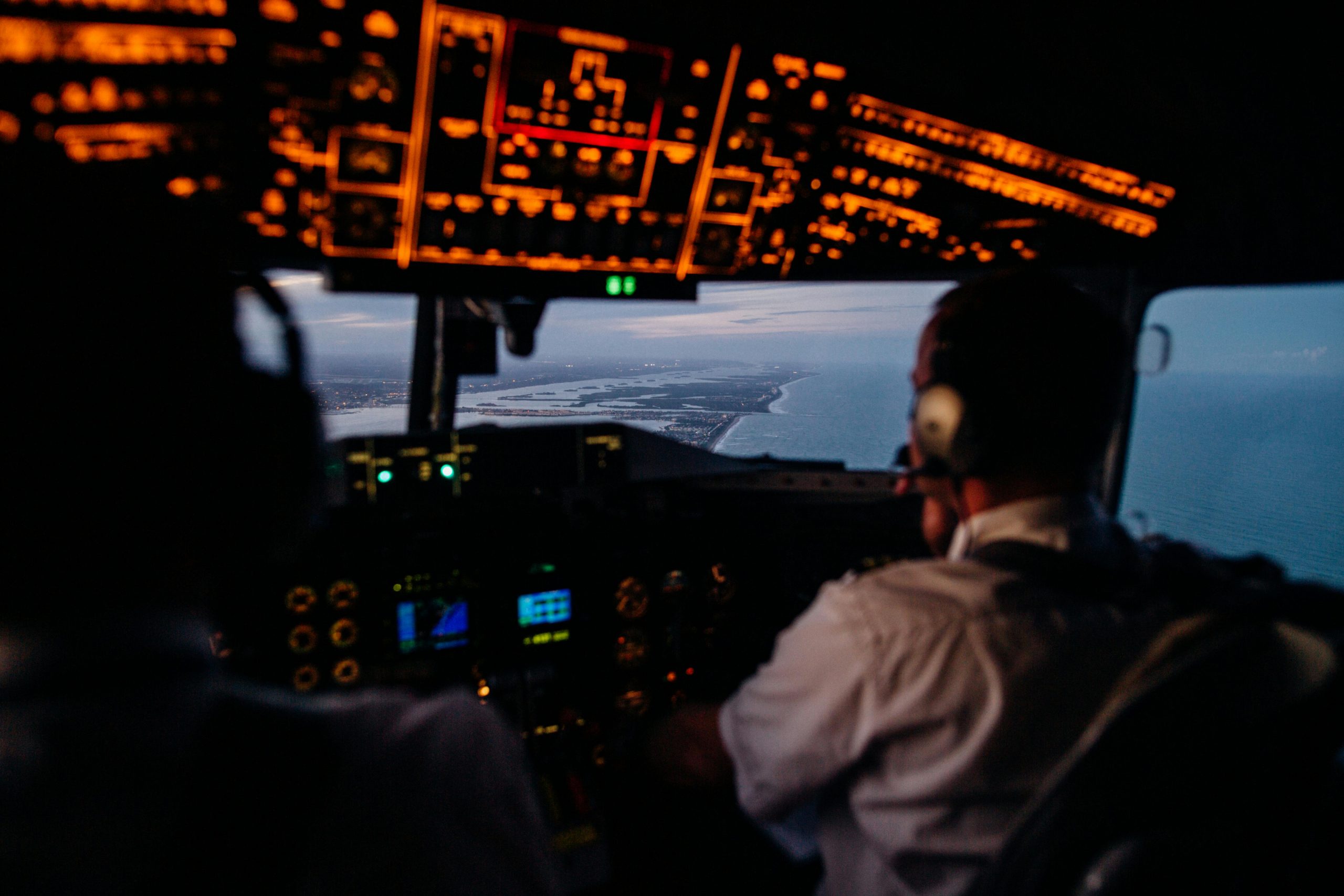- Formal Education: Pursue aviation-related degrees and certifications for comprehensive knowledge and skills.
- Hands-On Experience: Gain practical experience through internships or flight training programs.
- Networking: Build connections with industry professionals through events, organizations, and mentorship.
- Continuous Learning: Stay updated on technological advancements and regulatory changes for ongoing professional development.
- Safety and Compliance: Adhere to regulatory standards and prioritize safety in all aviation operations.
In the dynamic realm of aviation, aspiring professionals face exhilarating challenges and opportunities. This article is a guiding beacon for those embarking on this thrilling journey. It delves into the fundamental strategies and insights necessary for success in the aviation industry. From pursuing education and training to honing technical skills, cultivating soft skills, and navigating regulatory compliance and safety standards, aspiring aviators will discover invaluable guidance to propel their careers to new heights. With dedication and mastery of essential tips, aspiring aviation professionals can soar confidently toward their aspirations in the vast and captivating skies.
Pursuing Education and Training
Formal education is a crucial foundation for aspiring professionals in the dynamic world of aviation. Formal education in aviation provides comprehensive knowledge and understanding of the industry’s principles, regulations, and intricacies. It lays the groundwork for a successful career by imparting essential skills and expertise.
Aviation Degrees
Aspiring aviation professionals have various options for pursuing aviation-related degrees and certifications. These include bachelor’s degrees in aviation management, aerospace engineering, or aviation technology and specialized certifications in aircraft maintenance, air traffic control, or aviation safety.
Hands-On Experience
Gaining hands-on experience through internships or flight training programs is invaluable for aspiring aviation professionals. These opportunities offer practical, real-world experience that complements theoretical knowledge gained through formal education. Internships allow individuals to work alongside industry professionals, while flight training programs provide firsthand experience in piloting aircraft.
Learning and Professional Development
Continuous learning and professional development are essential for success in the aviation industry. The field is constantly evolving, with technological advancements, regulations, and best practices. As such, aspiring aviation professionals must prioritize ongoing education and training to stay abreast of industry developments and maintain their competitive edge. This can involve attending workshops, seminars, or conferences, pursuing additional certifications or endorsements, or participating in recurrent training programs to enhance skills and knowledge throughout their careers.
Building a Strong Network

Building a strong network is essential for aspiring aviation professionals to thrive in the industry. Networking in the aviation industry facilitates valuable connections, collaboration, and opportunities for career advancement. It allows individuals to establish relationships with peers, mentors, and industry leaders, increasing visibility and access to resources and job prospects.
Connect with Professionals
Connecting with professionals in the field can be achieved through various avenues, such as attending industry events like conferences, airshows, or seminars. These events provide opportunities to meet and interact with fellow aviation enthusiasts, industry experts, and potential employers. Additionally, joining professional organizations related to aviation, such as the Aircraft Owners and Pilots Association (AOPA) or the National Business Aviation Association (NBAA), offers networking platforms and resources for career development.
Mentorship
Mentorship plays a crucial role in the career growth of aspiring aviation professionals. Seeking guidance from experienced mentors provides valuable insights, advice, and support to navigate the industry’s complexities. Mentors can offer career guidance, share their knowledge and experiences, and provide valuable feedback to help individuals achieve their goals and aspirations.
Online Platforms
Utilizing online platforms and social media channels is another effective way to expand one’s professional network in the aviation industry. Platforms like LinkedIn allow individuals to connect with industry professionals, join aviation-related groups and forums, and engage in discussions and knowledge-sharing. Social media platforms like Twitter and Instagram also provide opportunities to follow industry influencers, stay updated on industry news and trends, and connect with like-minded individuals worldwide.
Developing Technical Skills
Developing technical skills is essential for aspiring aviation professionals to excel in their chosen field. Mastery of technical skills relevant to the aviation industry, such as aircraft maintenance, navigation, and air traffic control, is crucial for ensuring safe and efficient operations. Proficiency in these areas enhances job performance and contributes to overall aviation safety and reliability. You should look for a reputable aviation school offering a reliable pilot training program to facilitate this. These programs provide hands-on instruction and practical experience in aircraft operation, navigation, and emergency procedures.
Gain Technical Knowledge
There are various avenues through which individuals can gain technical knowledge in the aviation field. Formal education programs, such as aviation-related degrees or certifications, provide comprehensive instruction and hands-on training in specific technical areas. On-the-job training opportunities allow individuals to apply theoretical knowledge in real-world settings under the guidance of experienced professionals. Self-study through books, online courses, or instructional materials can supplement formal education and on-the-job training, enabling individuals to deepen their understanding and refine their technical skills.
Competitive and Effective
Staying updated on technological advancements is paramount for aviation professionals to remain competitive and effective. The aviation industry is continually evolving, with advancements in aircraft technology, navigation systems, and air traffic management. By staying abreast of these advancements through continuous learning, professionals can adapt to changes in their field, improve efficiency, and enhance safety standards. This can involve attending training sessions, seminars, or conferences and actively seeking out information from industry publications, websites, and online forums.
Cultivating Soft Skills
Cultivating soft skills is paramount for success in the aviation profession, complementing technical expertise and contributing to overall performance and safety. Soft skills, including communication, teamwork, and problem-solving, are essential in aviation. Effective communication ensures precise transmission of information between pilots, air traffic controllers, and ground personnel, reducing the risk of misunderstandings or errors. Strong teamwork fosters collaboration and coordination among crew members, enhancing efficiency and safety during flight operations. Additionally, adept problem-solving skills enable aviation professionals to address unforeseen challenges or emergencies swiftly and effectively, mitigating potential risks and ensuring the safety of passengers and crew.
Improve Soft Skills
Improving soft skills requires deliberate practice, seeking feedback, and self-reflection. Practicing communication techniques in various scenarios, such as cockpit communications or interactions with ground control, helps hone practical communication skills. Seeking feedback from colleagues, mentors, or instructors provides valuable insights into areas for improvement and opportunities for growth. Additionally, engaging in self-reflection allows individuals to assess their strengths and weaknesses, identify development areas, and set improvement goals.
Communication and Collaboration
Effectively communicating and collaborating with team members in high-pressure situations is essential for safe flight operations. Maintaining clear and concise communication, actively listening to others, and remaining calm under pressure are crucial. Additionally, establishing clear roles and responsibilities, practicing effective delegation, and fostering a culture of trust and mutual support contribute to successful teamwork in high-pressure environments. Aviation professionals can enhance safety, efficiency, and overall performance by cultivating soft skills and applying effective communication and collaboration strategies.

Understanding Regulatory Compliance and Safety
Understanding regulatory compliance and safety is paramount in the aviation industry to ensure the highest safety and operational integrity standards. Adhering to aviation regulatory standards and safety protocols is crucial for safeguarding the well-being of passengers, crew members, and the public. Compliance with regulations helps mitigate risks, prevent accidents, and maintain the integrity of aviation operations. Failure to adhere to regulatory requirements can result in severe consequences, including fines, legal liabilities, and suspension of operating privileges.
Establish and Enforce Standards and Regulations
The aviation industry is governed by various regulatory bodies and organizations establishing and enforcing standards and regulations. Key regulatory bodies include the International Civil Aviation Organization (ICAO), the Federal Aviation Administration (FAA) in the United States, and the European Union Aviation Safety Agency (EASA). These organizations develop regulations related to aircraft design and manufacturing, pilot licensing, air traffic control, and airport operations, among others.
Regulatory Changes and Updates
Aviation professionals must stay informed about regulatory changes and updates to ensure compliance with evolving standards. This can be achieved by regularly monitoring official publications, such as regulatory notices, directives, and advisories issued by relevant authorities. Additionally, attending industry seminars, workshops, and training programs provides opportunities to stay updated on regulatory changes and best practices.
In the expansive realm of aviation, mastering essential tips outlined in this guide is not merely a pathway to success—it’s a fundamental prerequisite for aspiring aviation professionals. By prioritizing education, networking, technical and soft skill development, regulatory compliance, and safety, individuals can navigate the complexities of the aviation industry with confidence and competence. As they journey to master the skies, aspiring aviation professionals must remain committed to continuous learning, adaptability, and unwavering dedication to excellence. With diligence and perseverance, they will soar to new heights and leave an indelible mark on the dynamic world of aviation.


